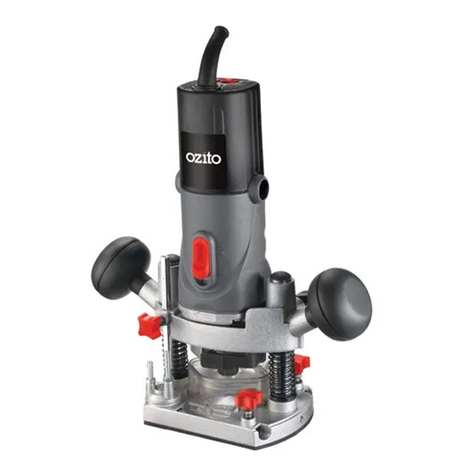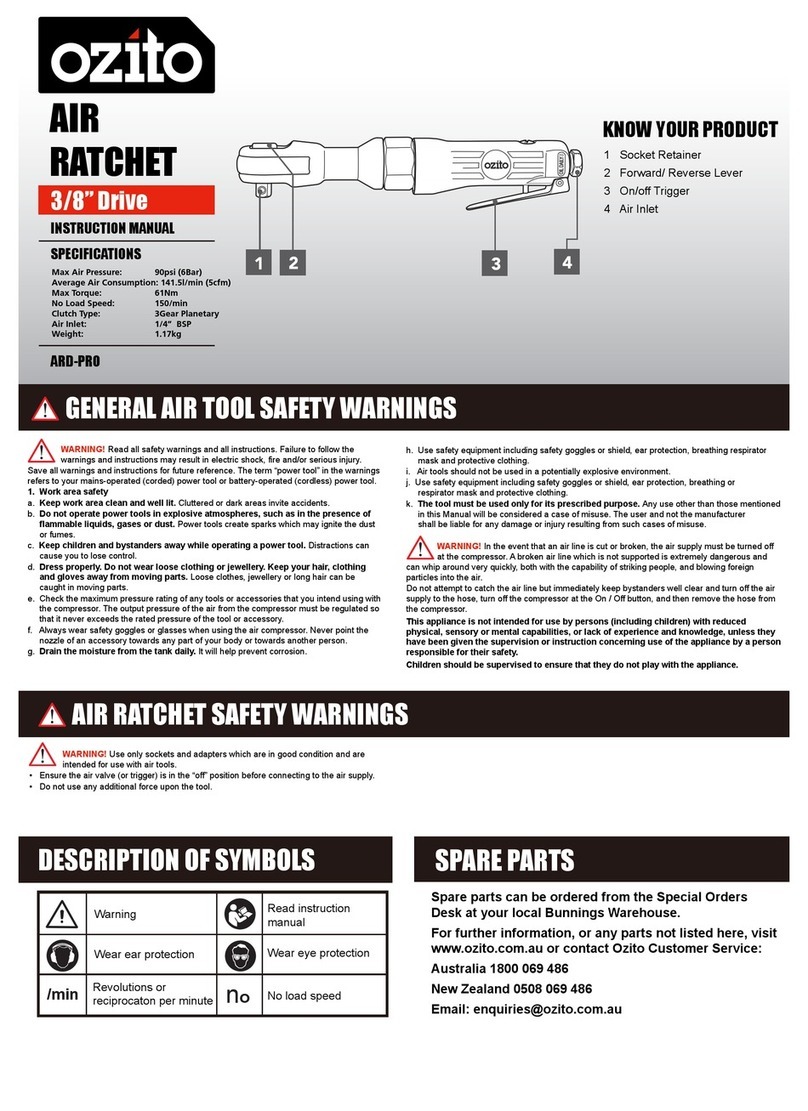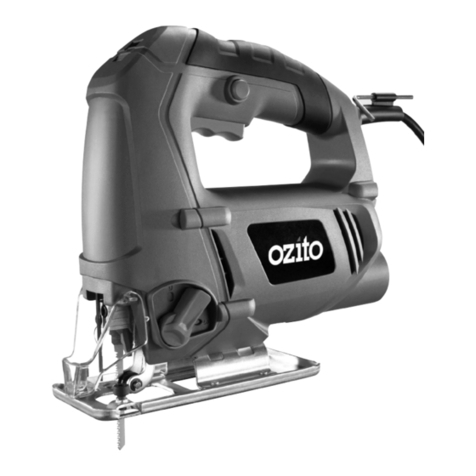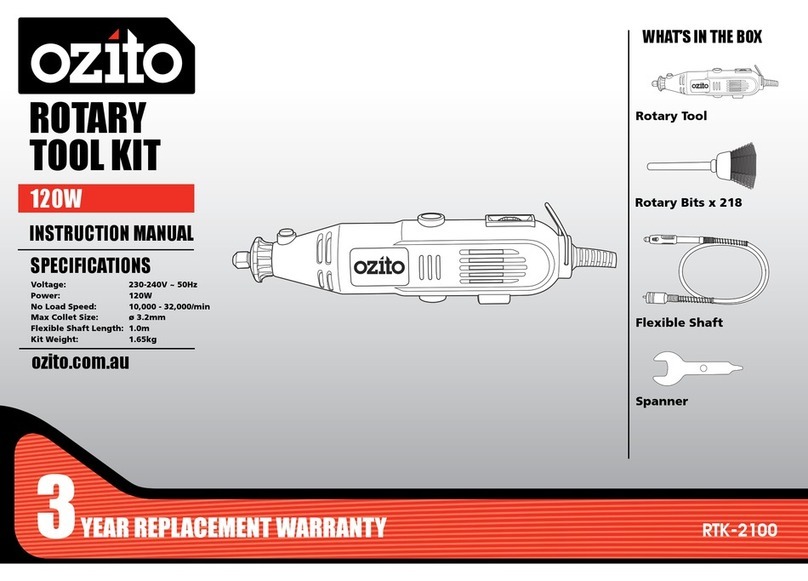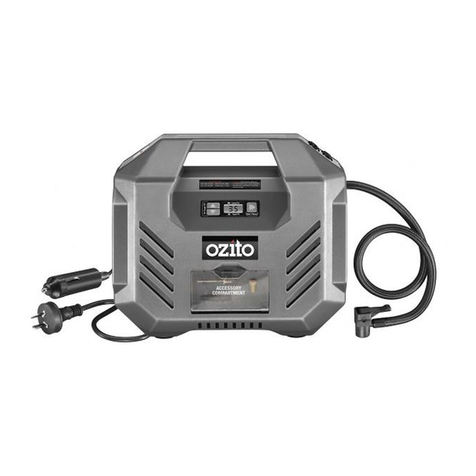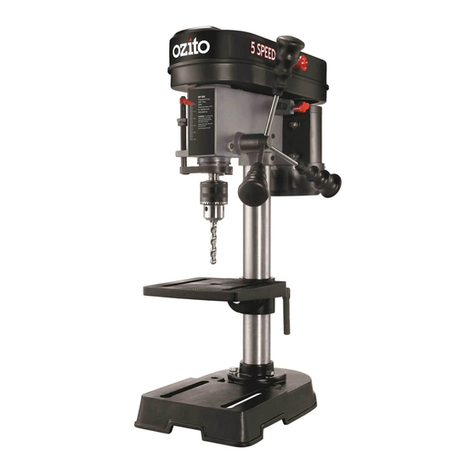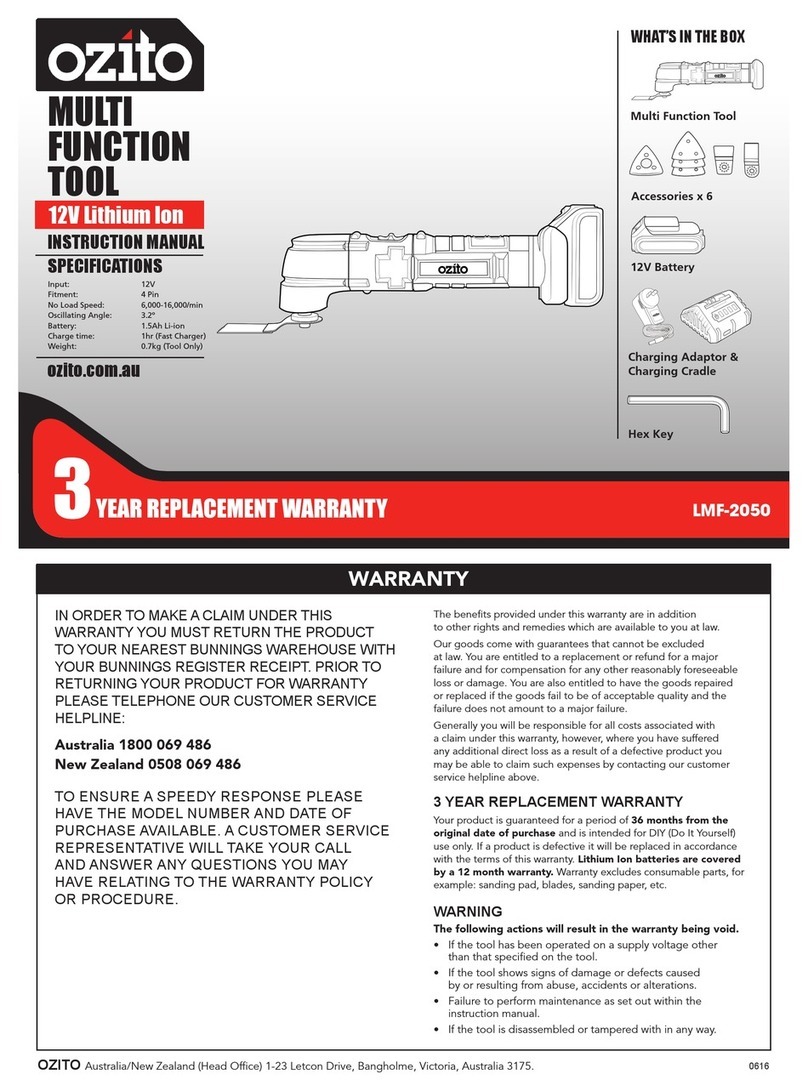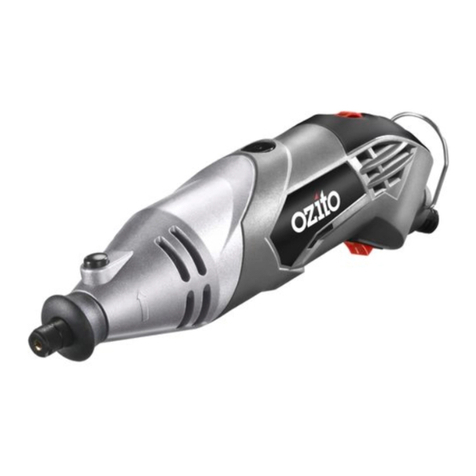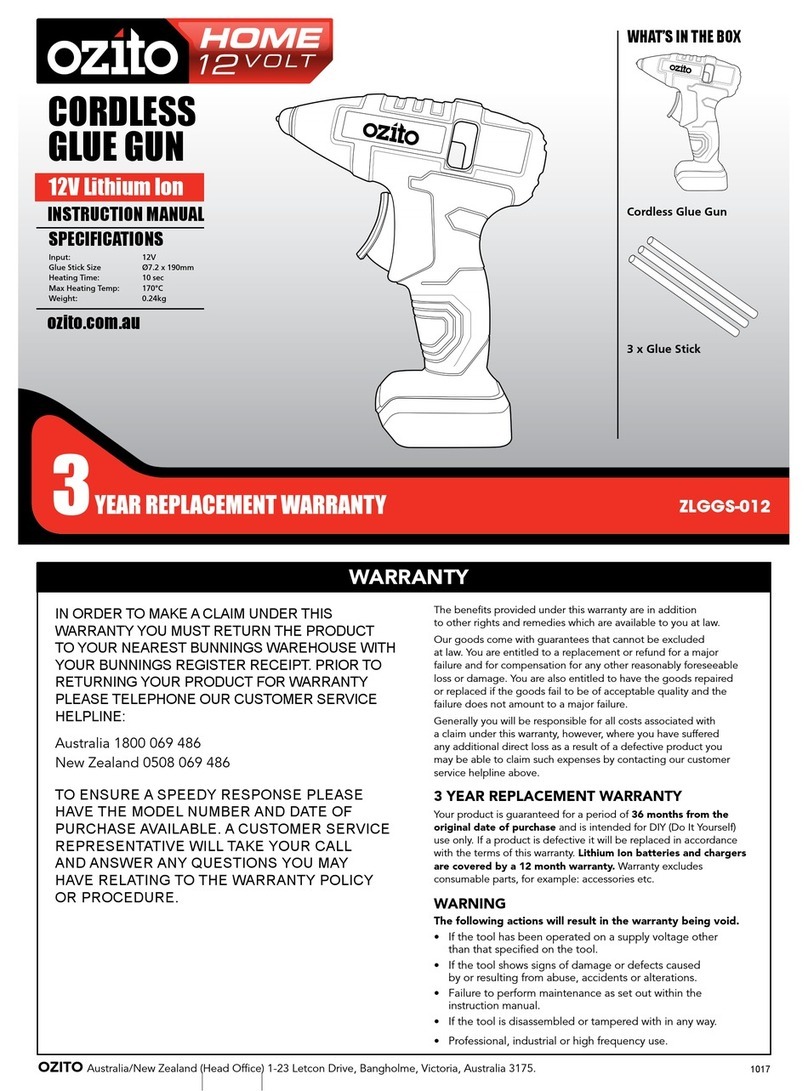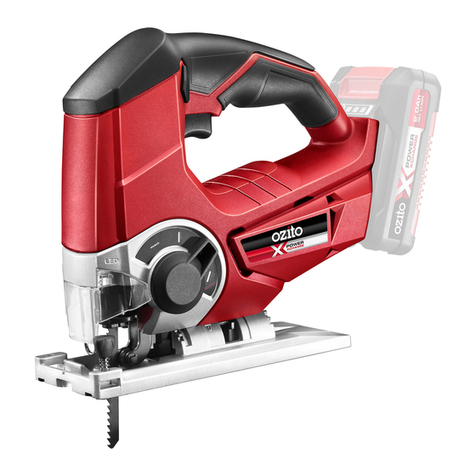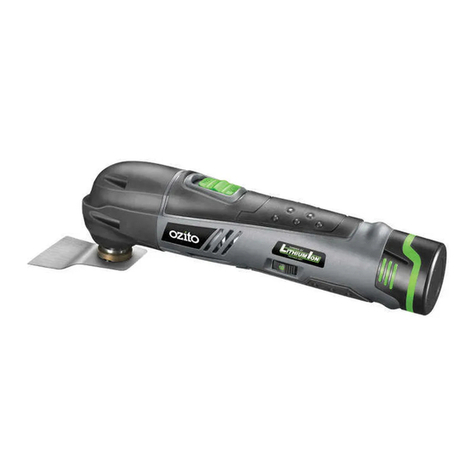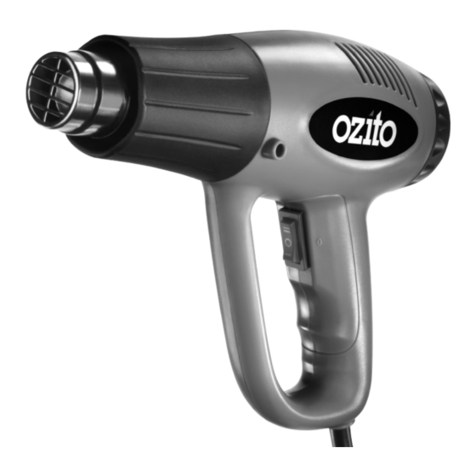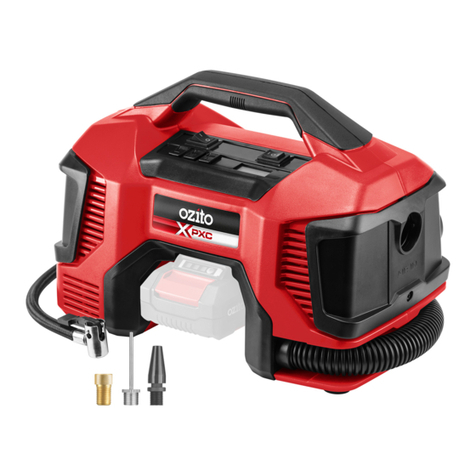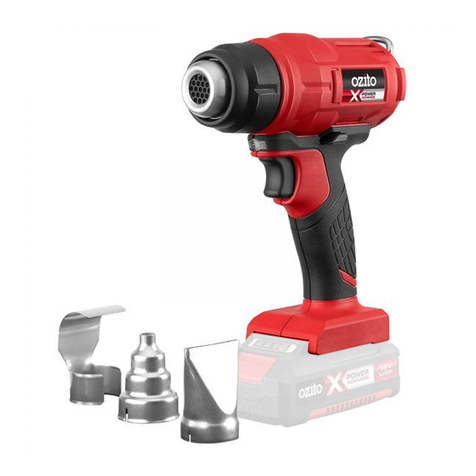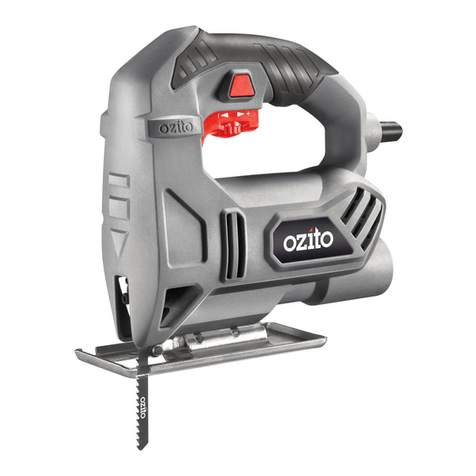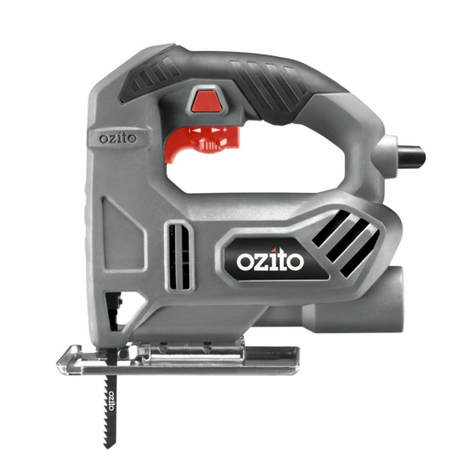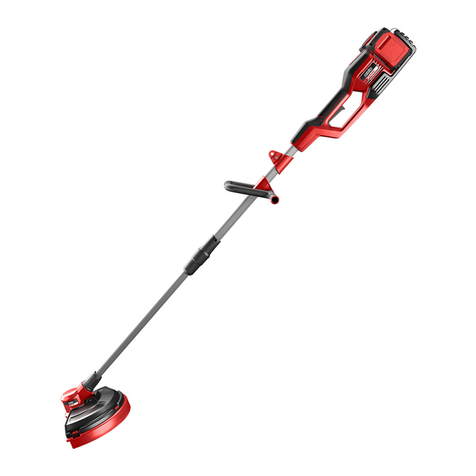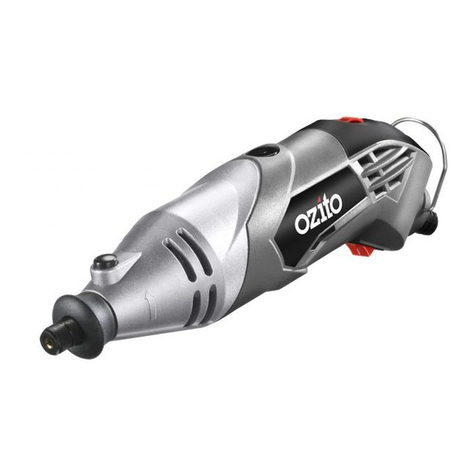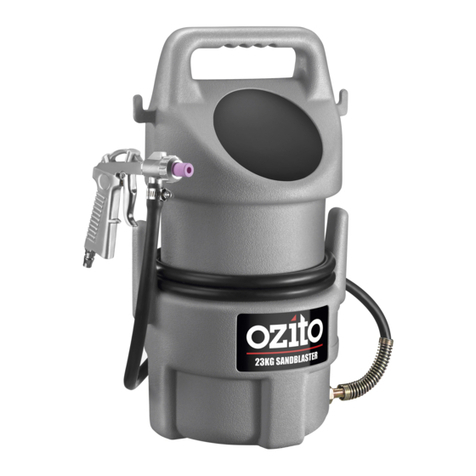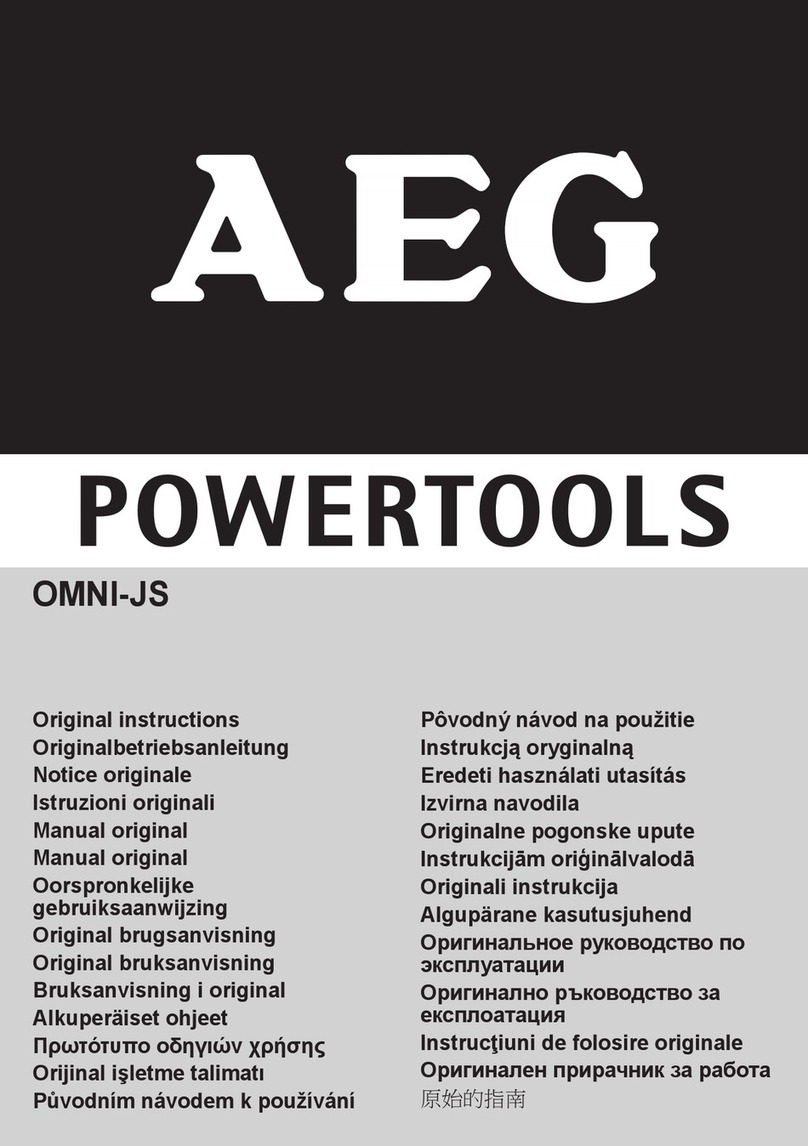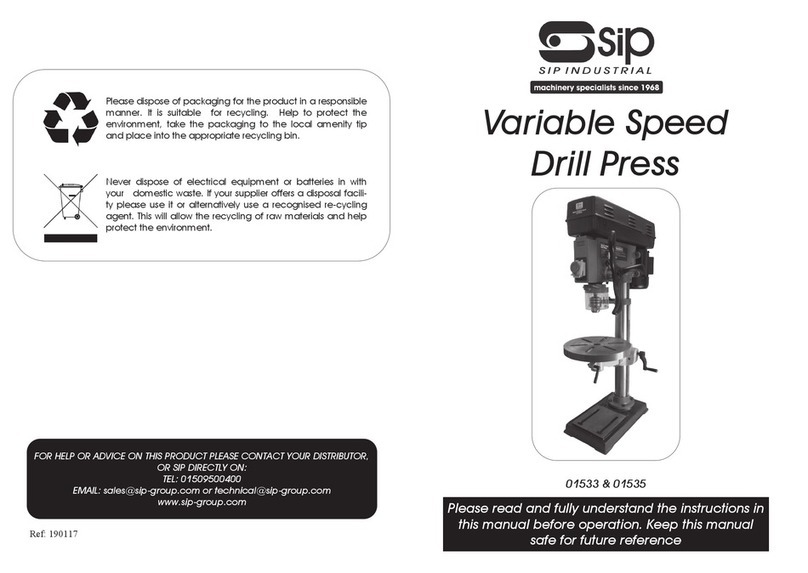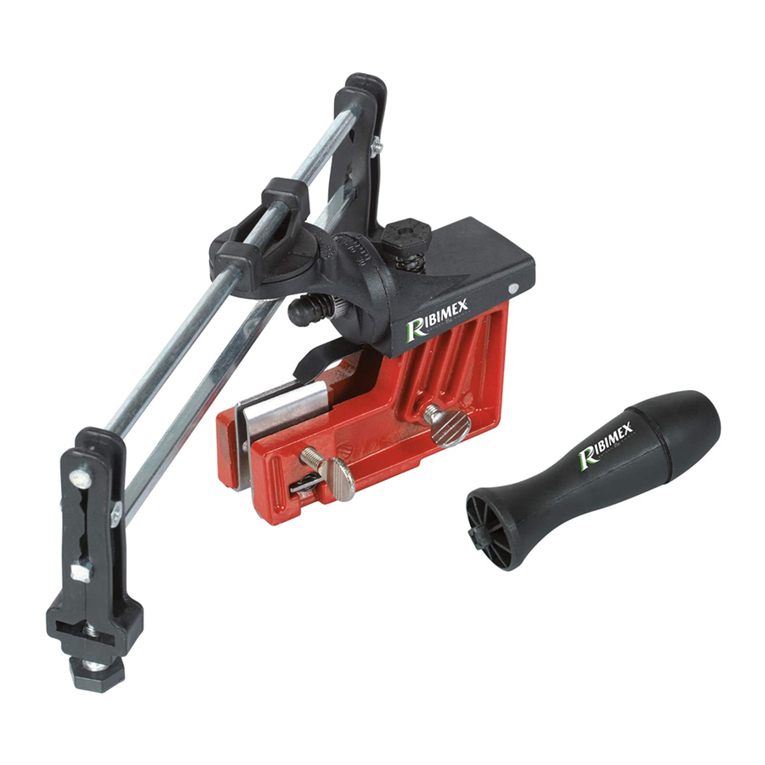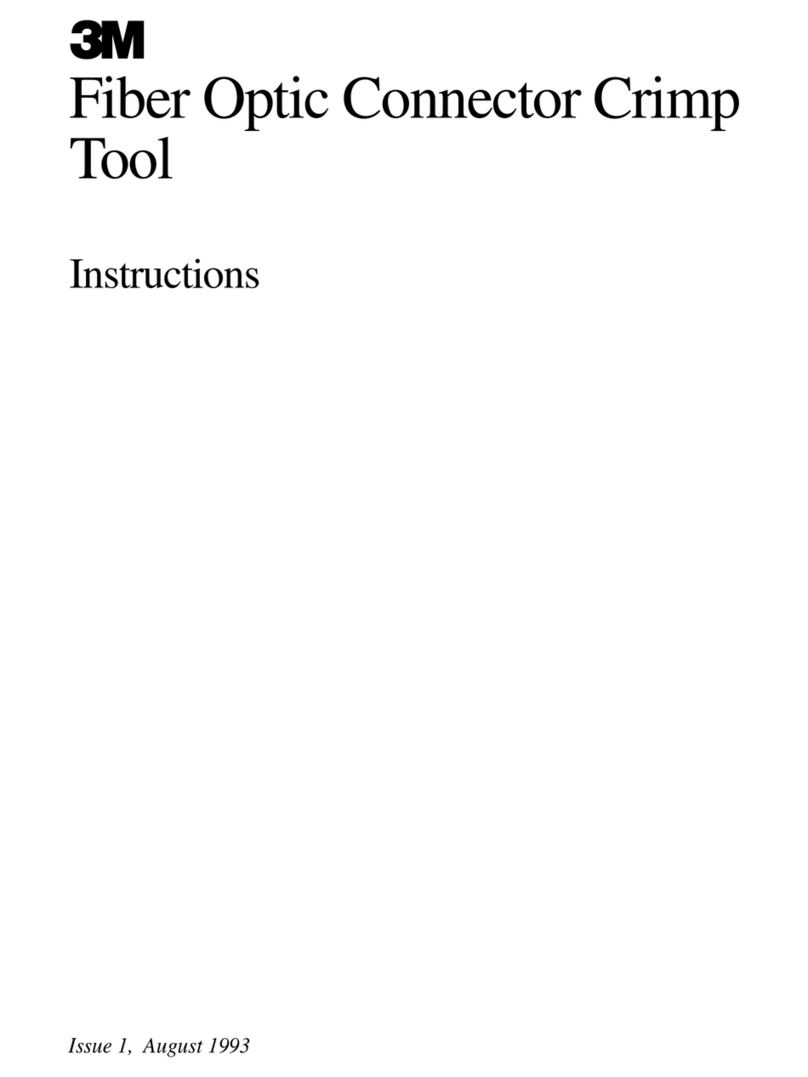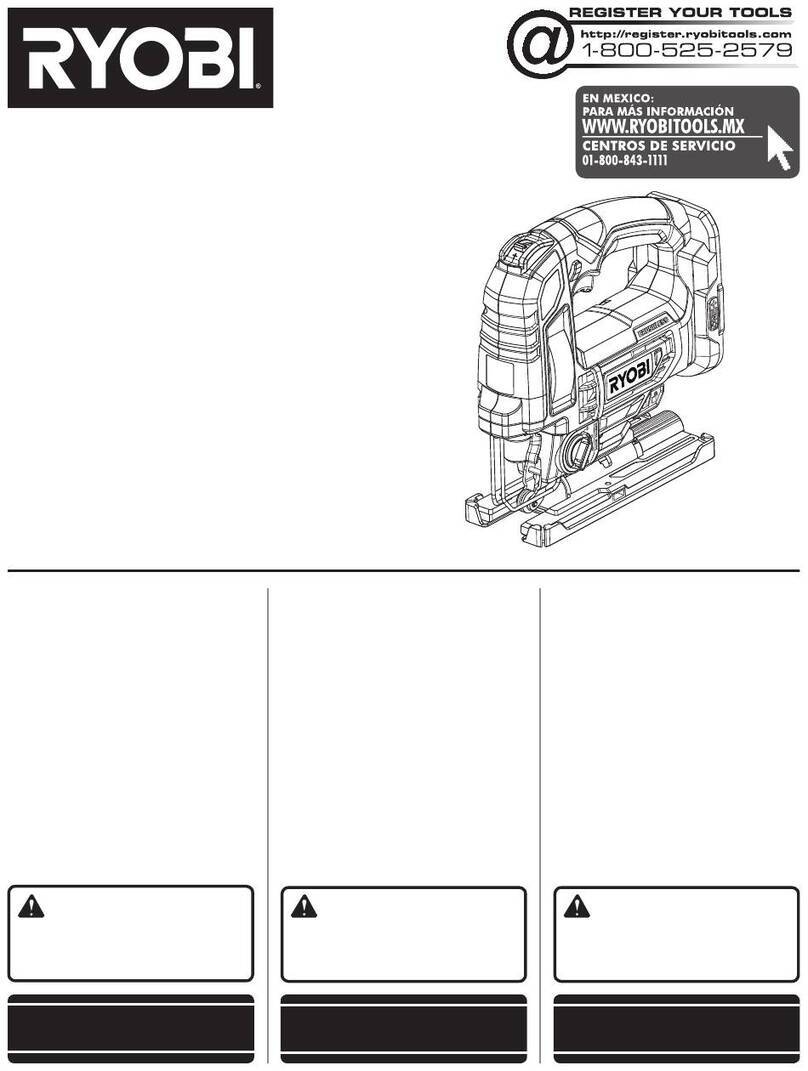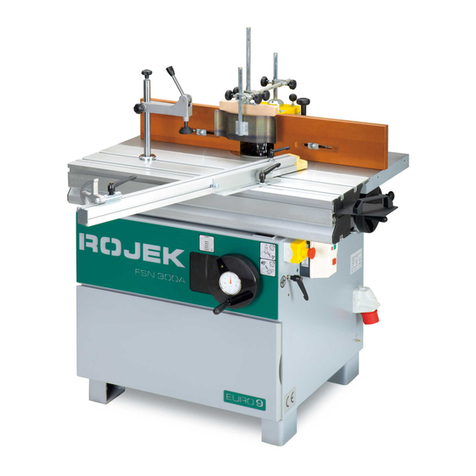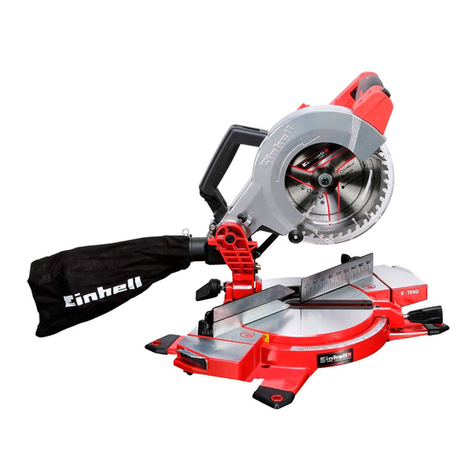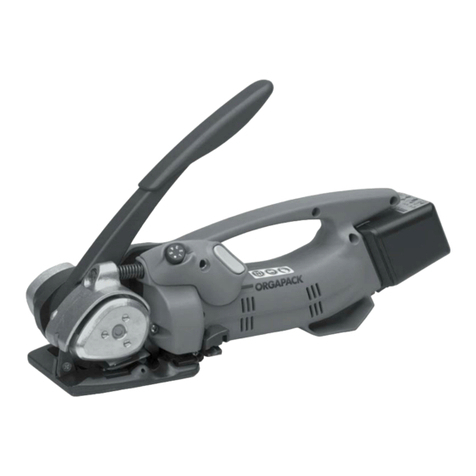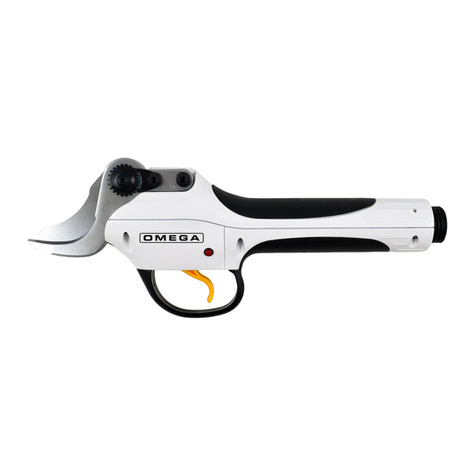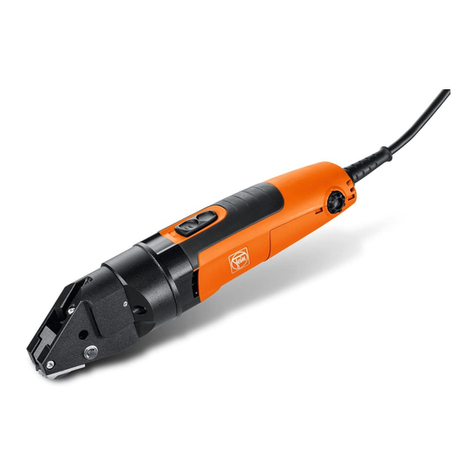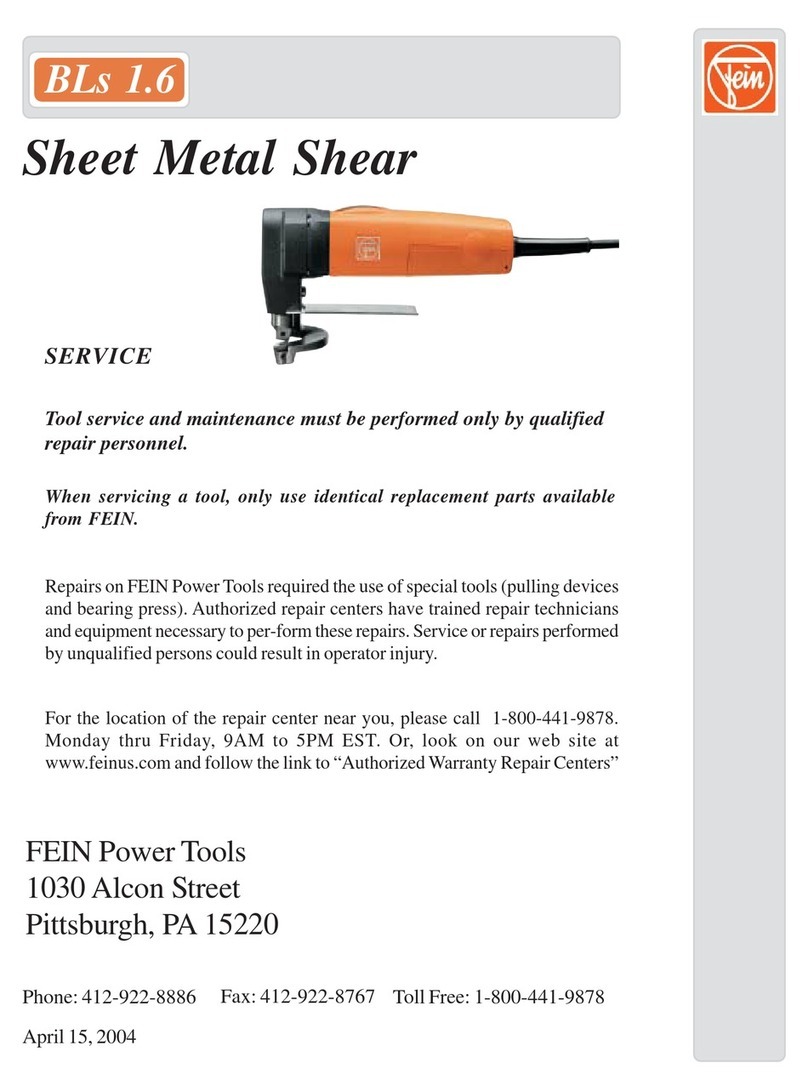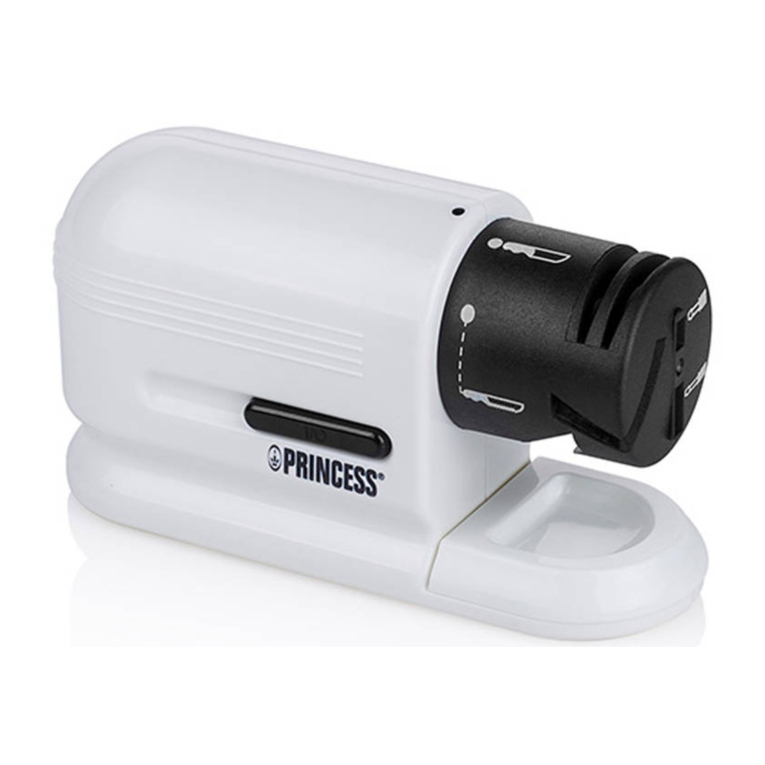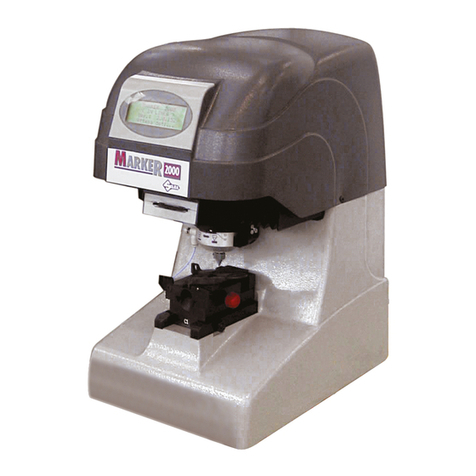6
SAFETY INSTRUCTIONS FOR JIGSAWS
• Pull out all nails in the material before starting to saw. Cutting nails
may damage your tool.
• Do not cut hollow pipe with the jigsaw. Do not cut material above the
specified thicknesses stated within this manual
• Always allow enough clearance underneath the material to ensure the
blade does not touch the floor, table etc.
• Do not touch moving parts with your fingers or hands.
• Do not cut through walls or cavities without first checking for hidden
electrical wires.
• Ensure that you have tightened the blade prior to starting the machine.
• When finishing sawing, wait until the saw blade has ceased moving
prior to removing it from the material.
• Do not touch the saw blade immediately after use. Allow time for the
blade to cool, otherwise it could burn you due to the heat generated
during sawing.
• Always check accessories to ensure that they are suitable for the
operating speeds of this tool.
• Incorrect accessories can break apart at high speed and cause serious
damage or injury.
• Do not secure the jigsaw upside down in a vice or work bench and use
it as a saw bench. This can lead to serious injury.
• Always use the appropriate blade for the material being cut. There are
special blades for each type of material. Please check with your retailer
or accessory packaging to determine the appropriate type of blade for
the material.
Warning! Some dust created by sanding, sawing, grinding, drilling
and other construction activities contain chemicals known to cause
cancer, birth defects or other reproductive harm.
Some examples of these chemicals are:
• Lead from lead-based paints;
• Crystalline silica from bricks, cement and other masonry products, and;
• Arsenic and chromium from chemically-treated timber.
The risk from such exposures vary depending on how often you do this
type of work. To reduce your exposure to these chemicals; work in a well
ventilated area, and work with approved safety equipment, such as those
dust masks that are specifically designed to filter out microscopic particles.
Always wear eye protection and a dust mask for dusty applications and
when drilling/chiselling overhead. Sanding particles can be absorbed by
your eyes and inhaled easily and may cause health complications.


